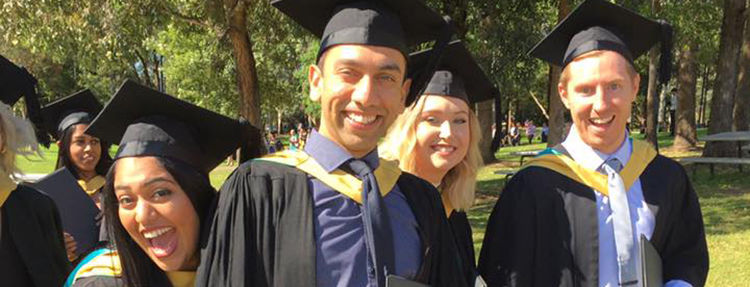Undergraduate courses

In the Department of Linguistics we offer two pathways for undergraduate study: the Bachelor of Speech and Hearing Sciences and the Bachelor of Linguistics and Language Sciences.
These degrees are both centred around the study of Linguistics, but take this starting point in different directions. Both are 240 credit point specialist degrees, meaning that you complete 160 credit points (or 16 units) within the subject of the degree, and have 80 credit points left for elective units.
Why Macquarie Linguistics?
Macquarie University is ranked number 27 in the world for Linguistics, so you will be taught by staff who are experts in their field and world class researchers.
We are also innovators when it comes to learning and teaching, and embed a range of technologies and types of assessment into our units that allow you to develop skills that will be useful in a range of workplaces. For example, in some units you might be asked to produce a short video as part of a group project, while in another you might make a podcast.
In some units you’ll need to develop data-handling skills while in others your written communication will come to the fore. That doesn’t mean we don’t have more traditional forms of assessment like essays and exams, but we aim to give you a variety of challenging tasks that enhance your learning experience throughout the duration of your degree.
Why study the Bachelor of Speech and Hearing Sciences?
The students who study our Bachelor of Speech and Hearing Sciences typically intend to progress to the Master of Speech and Language Pathology or the Master of Clinical Audiology, and from there become either Speech and Language Pathologists or Clinical Audiologists.
The Bachelor of Speech and Hearing Sciences has been specifically designed to give you a solid grounding in the areas of Linguistics most relevant to these courses. In particular, you will study phonetics, speech physiology, and language development which are of key relevance to the clinical applications of Linguistics.
Why study the Bachelor of Linguistics and Language Sciences?
Do you like puzzles and code-breaking? Have you ever used an internet search engine, predictive text entry, or voice recognition? Have you ever wondered who taught digital assistants like Siri or Alexa to talk? These are all linked to linguistics: the scientific study of language. But this is just one application of Linguistics.
All languages are in a constant state of change and over half of the world’s population speak multiple languages, yet 40% of the 7,111 languages currently spoken in the world are endangered. One of the jobs that linguists do is to document languages, to develop educational resources, and to preserve cultural knowledge.
But Linguistics is not just about language documentation. People who work with language need to understand the way in which languages work. This could involve understanding how they can be broken down into their component parts, how the brain processes language, how children develop language, how language is used in different cultures and contexts, and how languages change.
There are also applications of linguistics in the legal world, with forensic linguists providing expert witness testimony in cases where speakers or writers of texts need to be identified, or consulting with law enforcement agencies. An understanding of linguistics and how the world’s languages convey meaning in different ways is also a way to enhance an understanding of cross-cultural differences. Linguists often go on to work in areas such as organisational communication, interpreting, and language preservation/revitalisation, speech and language technology, and research.
As a subject, Linguistics contains many different approaches and applications and readily combines with a wide range of other subjects. This makes it an ideal degree to pair with other Macquarie Degrees as part of a Double Degree, or by completing a minor in another subject.
Some of the subjects that we see our students create doubles with include:
- Ancient History
- Cybersecurity
- Marketing
- Commerce
- Information Technology
- Psychology.
In this degree we introduce students to core areas of linguistics and provide them with the opportunity to gain a deep understanding of some of the field’s central questions by looking at real languages and the patterns contained in those languages.
All our units introduce explicit problem-solving techniques that students have the opportunity to apply to novel data through guided practise with our experienced teachers and researchers.
Graduates of this course are experts in language and this expertise is of great value in a range of professional contexts.
You can also watch the Q&A Open Day video below:
